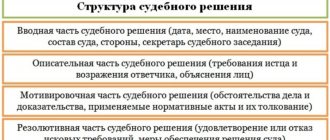New edition of Art. 113 Code of Civil Procedure of the Russian Federation
1. Persons participating in the case, as well as witnesses, experts, specialists and translators are notified or summoned to court by registered mail with acknowledgment of receipt, subpoena with acknowledgment of delivery, telephone message or telegram, by fax or using other means of communication and delivery, ensuring the recording of a judicial notice or summons and its delivery to the addressee.
2. A judicial summons is one of the forms of judicial notices and summonses. Persons participating in the case are notified by court summons of the time and place of the court hearing or the performance of certain procedural actions. Along with a notice in the form of a subpoena or registered letter, copies of procedural documents are sent to the person participating in the case. Subpoenas also serve to summon witnesses, experts, specialists and translators to court.
2.1. State authorities, local government bodies, other bodies and organizations that are parties and other participants in the process may be notified by the court of the time and place of the court hearing or the performance of certain procedural actions only by posting relevant information on the official website of the court on the Internet information and telecommunications network » within the period specified in part three of this article, if the court has evidence that the indicated persons were duly notified of the time and place of the first court hearing. Such persons, who have received the first judicial notice in the case under consideration, independently take measures to obtain further information about the progress of the case using any sources of such information and any means of communication.
The persons specified in paragraph one of this part bear the risk of adverse consequences as a result of their failure to take measures to obtain information about the progress of the case, if the court has information that these persons have been properly notified of the commenced process, except in cases where measures to receiving information could not be accepted by them due to extraordinary and unavoidable circumstances.
If local government bodies, other bodies and organizations do not have the technical capabilities, they have the right to file a petition to send them court notices and summonses without using the Internet information and telecommunications network.
3. Persons participating in the case must be served with court notices and summons in such a way that these persons have sufficient time to prepare for the case and appear in court on time.
4. A judicial notice addressed to a person participating in the case is sent to the address indicated by the person participating in the case or his representative. If the citizen does not actually live at the specified address, the notice may be sent to his place of work.
5. A judicial notice addressed to an organization is sent to its address.
A judicial notice addressed to an organization may be sent to the address of its representative office or branch if they are indicated in the constituent documents.
6. The forms of judicial notices and summons provided for by this article are also applied to foreign citizens and foreign legal entities, unless a different procedure is established by an international treaty of the Russian Federation.
7. Information about the acceptance of a statement of claim, an application for court proceedings, about the time and place of a court hearing or the performance of a separate procedural action is posted by the court on the official website of the relevant court on the Internet no later than fifteen days before the start of the court hearing or performing a separate procedural action, unless otherwise provided by this Code, and in cases with shortened consideration periods - no later than three days before the start of the court hearing or performing a separate procedural action. Documents confirming that the court posted the specified information on the official website of the relevant court on the Internet, including the date of its placement, are attached to the case materials.
Fiction of proper judicial notice
26.04.19
M. Poluektov / AK Poluektova and partners
If the court sent you a judicial notice, but you did not receive it, this does not mean that you were not properly notified. According to the current procedural law, the risk of non-receipt of court notices is borne by the recipient. And ignorance of the notice rules can be costly for a litigant.
In our practice, there have been many cases when a client learned about a court decision or court order made against him after the judicial act had entered into legal force. He found out only when the money had already been written off from his account or when the bailiffs showed up “on the doorstep.” Due to the expiration of deadlines, it is difficult to appeal such judicial acts.
This is possible thanks to the special rules of judicial notices, which are set out in Chapter 10 of the Code of Civil Procedure, Chapter 12 of the Arbitration Procedure Code and Chapter 9 of the CAS.
According to these rules, it is enough for a legal entity to notify once about the commencement of a trial, and in the future it must independently take measures to obtain information about the progress of the case.
An individual who is a participant in civil proceedings must be notified of each court hearing.
However, what does it mean to notify? Should the court have evidence that the addressee received a judicial notice (judicial act)? The answer is no, it shouldn't. The legislator has established the fiction of proper notification.
It is sufficient for the court to send the judicial notice by registered mail with return receipt requested to the proper address:
- for a legal entity - at the address specified in the Unified State Register of Legal Entities;
- for an individual entrepreneur - at the address specified in the Unified State Register of Entrepreneurs;
- for an individual who is not an individual entrepreneur - at his last known place of residence. As a rule, this address is indicated by the plaintiff himself. This may be the citizen’s registration address at the place of residence or stay, or the address that the citizen indicated in the contract or in correspondence.
A person is considered to have been properly notified if, despite the postal notification, the addressee does not appear to receive the judicial notice (copy of the judicial act).
But this rule “works” only if the Russian Post office has followed the procedure for delivering postal items of the “Judicial” category.
This procedure is prescribed in the Rules for the provision of postal services, approved. Order of the Ministry of Telecom and Mass Communications of Russia dated July 31, 2014 N 234 (hereinafter referred to as the Rules), in the Procedure for the acceptance and delivery of domestic registered mail, approved. Order of the Federal State Unitary Enterprise "Russian Post" dated May 17, 2012 N 114-p (hereinafter referred to as the Procedure), as well as in the Special Conditions for the Reception, Delivery, Storage and Return of Postal Items of the "Judicial" category, approved. By Order of the Federal State Unitary Enterprise "Russian Post" dated December 5, 2014 N 423-p (hereinafter referred to as the Special Conditions).
The reality is that this procedure is not always followed by our postmen. This gives the defendant a chance to restore the missed deadline for appealing the judicial act (submitting objections) and cancel the court decision.
So, when delivering a postal item of the “Judicial” category, the postman must first try to hand over to the addressee against receipt a notice (forms 22, 22-c) inviting the addressee to the postal facility to receive the postal item. And only if the addressee is not at home can the postman send a notice to the mailbox (clauses 3.3, 3.4 of the Special Conditions).
In practice, as a rule, postmen do not knock on doors and immediately drop the notice into the mailbox. This is a violation, but it is difficult to prove. It is much easier to prove another violation, which is failure to comply with the double notification procedure.
Thus, if the addressee fails to appear for a postal item of the “Judicial” category within 3 working days after delivery of the initial notice by f. 22 a secondary notice is delivered to him via f. 22-v.
In this case, on the reverse side of the postal envelope, a mark is made about the date and time of issue of the secondary notice, which is signed by the postal worker (clause 20.17 of the Procedure), and on the tear-off part of the notice, the date and signature of the postal worker are affixed (clause 3.4 of the Special Conditions).
A “Judicial” postal item that has not been delivered to the addressee is stored at the post office for 7 calendar days. The day of receipt and return of mail, as well as non-working holidays established by the labor legislation of the Russian Federation, are not taken into account (clause 34 of the Rules).
After this, the judicial mail must be returned to the court “after the expiration of the storage period.”
Thus, based on the postal envelope returned to the court, it can be determined whether the double notice procedure was followed.
In addition to the marks on the postal envelope, you can take into account similar information about the movement of postal items contained on the official website of the Federal State Unitary Enterprise “Russian Post” (https://www.pochta.ru/).
The above means that in order to reduce risks, you need to regularly check your mailbox.
Legal entities and individual entrepreneurs should subscribe by name, INN or OGRN of the participant on the website “Card Index of Arbitration Cases” (https://guard.arbitr.ru/#index). In this case, if a lawsuit is initiated against you, you will be notified by email.
Individuals should periodically check the website of the court of general jurisdiction that hears cases at their place of residence for information about the availability of legal proceedings with their participation.
If, nevertheless, you have received a judicial act, the period for appealing (submitting objections) has already expired, then you should look for valid reasons for reinstating this period.
Such reasons include not only the above-mentioned violations of the rules for the delivery of judicial correspondence by mail, but also the absence of a citizen at his place of residence due to illness, being on a business trip, vacation, due to moving to another place of residence, etc. (Clause 34 of the Resolution of the Plenum of the Supreme Court of the Russian Federation dated December 27, 2016 No. 62).
As for the substance of the appeal, it should be remembered that consideration of the case in the absence of any of the persons participating in the case and not properly notified of the time and place of the court hearing is an absolute basis for canceling the decision of the court of first instance (Article 330 of the Code of Civil Procedure, Article 270 of the APC).
This basis for canceling a judicial act cannot be underestimated.
In our practice, there was a case when we managed to appeal a decision of a court of general jurisdiction on the grounds of improper notification of the defendant, despite the fact that the defendant’s representative participated in the court hearing.
The fact is that “the representative of the citizen participating in the case is not in himself a person participating in the case, and his notification does not relieve the court of the obligation to notify the citizen he represents about the time and place of the hearing of the case if the party has not refused from personal participation in the case and did not express this in the manner prescribed by law” (Determination of the Judicial Collegium for Civil Cases of the Supreme Court of the Russian Federation dated May 29, 2018 N 53-KG18-5).
In other words, in civil proceedings, if a representative is notified, this does not mean that his principal is notified. In the arbitration process, this logic does not work, since Article 123 of the Arbitration Procedure Code contains a rule that is not in the Civil Procedure Code - persons participating in the case are considered to have been properly notified if a court notice is served on a representative of the person participating in the case.
Therefore, the participation of the defendant’s representative in the court hearing does not exclude the use of subparagraph 2, paragraph 4, Article 330 of the Code of Civil Procedure as a basis for canceling the court decision.
Assigning a case to trial
In accordance with Art. 153 of the Code of Civil Procedure of the Russian Federation, the judge, recognizing the case as prepared:
- issues a ruling on appointing him for trial at a court hearing;
- notifies the parties and other persons participating in the case about the time and place of consideration of the case;
- calls other participants in the process.
Thus, assigning a case for trial includes three procedural acts:
- determination of the date and place of consideration of the case (in this case, the judge must not go beyond the procedural period established by Article 154 of the Code of Civil Procedure of the Russian Federation for legal proceedings in the case, but at the same time provide the parties and other persons participating in the case with time sufficient to prepare for process);
- notifying the parties and all legally interested persons about the time and place of the hearing of the case (the duty of the judge in accordance with Article 150 of the Code of Civil Procedure of the Russian Federation, an indispensable requirement for adversarial proceedings);
- summoning witnesses, experts and interpreters to court hearings (not necessarily in all civil cases without exception).
Article 120 of the Code of Civil Procedure of the Russian Federation. Search for the defendant
- If the location of the defendant is unknown for claims made in defense of the interests of the Russian Federation, constituent entities of the Russian Federation, municipalities, as well as for claims for the collection of alimony, compensation for damage caused by injury, other damage to health or as a result of the death of the breadwinner, the judge is obliged to make a ruling on a wanted notice for the defendant.
- Collection of expenses for searching for the defendant is carried out on the basis of an application from the territorial body of the federal executive body for ensuring the established procedure for the activities of courts and the execution of judicial acts and acts of other bodies by issuing a court order in the manner prescribed by Chapter 11 of this Code.
professional civil lawyer in Moscow
Article 115 of the Code of Civil Procedure of the Russian Federation. Delivery of subpoenas and other court notices
- Subpoenas and other court notices are served by mail or by a person authorized by the judge to deliver them. The time of their delivery to the addressee is recorded in the manner established by postal organizations or on a document to be returned to the court.
- The judge may, with the consent of the person participating in the case, issue a summons or other judicial notice to him for delivery to another person being notified or summoned to court. A person who has been instructed by a judge to deliver a subpoena or other judicial notice must return to the court the counterfoil of the subpoena or a copy of the other judicial notice with a signature from the addressee for its receipt.
Article 114 of the Code of Civil Procedure of the Russian Federation. Contents of subpoenas and other court notices
- Subpoenas and other court notices must contain: 1) the name and address of the court; 2) indication of the time and place of the court hearing; 3) the name of the addressee - the person notified or summoned to court; 4) an indication as to whom the addressee is notified or called; 5) the name of the case for which the addressee is notified or summoned.
- In court summonses or other court notices addressed to persons participating in the case, it is proposed to present to the court all the evidence they have in the case, and also indicates the consequences of failure to provide evidence and failure to appear in court of the notified or summoned persons, and explains the obligation to inform the court of the reasons for the failure to appear.
- Simultaneously with the subpoena or other judicial notice addressed to the defendant, the judge sends a copy of the statement of claim, and with the subpoena or other judicial notice addressed to the plaintiff, a copy of the defendant’s written explanations, if the explanations were received by the court.
Article 116 of the Code of Civil Procedure of the Russian Federation. Service of subpoena
- A judicial summons addressed to a citizen is handed over to him personally against a signature on the counterfoil of the summons, which must be returned to the court. A summons addressed to an organization is handed to the appropriate official, who signs for its receipt on the counterfoil of the summons.
- If the person delivering the summons does not find the citizen summoned to court at his place of residence, the summons is handed to one of the adult family members living with him with their consent for subsequent delivery to the addressee. If a citizen is summoned to court in a case on recognizing him as incompetent or partially capable, a note is made on the summons about the need to serve such a summons to the addressee in person. Serving a summons in a case declaring the addressee incompetent or partially capable to other citizens is not permitted.
- If the addressee is temporarily absent, the person delivering the summons notes on the counterfoil of the summons where the addressee has gone and when he is expected to return.
- If the location of the addressee is unknown, a note about this is made on the summons to be served, indicating the date and time of the action taken, as well as the source of information.









